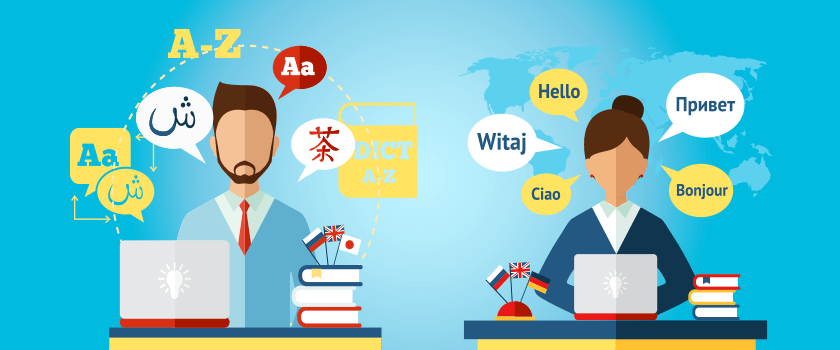Dubai has become one of the most vibrant business destinations in the world and the world knows no end of global brands in any sphere luxury retail and hospitality to technology, finance and FMCG. It is remarkable to note that the consumer base of Dubai is diverse, multi-lingual with over 200 nationalities resided and operating in the city. This variety brings gigantic prospects to the brands yet it makes them require a method of speaking that cannot apply to mere translation. In order to engage audiences in Dubai, brands are more and more resorting to marketing translation and cultural localization. This will enable them to tailor the message to suit local values, linguistic and cultural subtleties and eventually gain greater brand trust in the area.
The Reason Translation is not Sufficient to do Marketing
Marketing language is structured in a way that it persuades, inspires and causes an emotional appeal. The word-by-word literal translation is usually not able to provide such an emotional connection as it lacks the tone, intention, and cultural cues that were incorporated into the original message. In a market as multinational as Dubai where people have diverse languages like Arabic, English, Hindi, Urdu, Russian, Filipino, and many other languages, literal translation might result in unnatural, awkward, and culturally insensitive messaging.
Marketing cannot just be done with a language accurate in linguistics, but one must know how various people define imagery, humour, values, and buying motivations. A slogan, which performs well in English, might not create the same feeling in Arabic. The promotional campaign targeted at Western viewers can require changing the content so that it fits the Middle East tastes. Localization helps fill this divide by re-creating content in a manner that it can be considered native, relatable and trustworthy to the target audience.
Role of the Localization in Developing Brand Trust.
Localization will explore beyond translation and modify the message according to the cultural context on Dubai diversified population. This involves tone manipulation, images, idioms, forms, and even colour to suit the expectations of the audience. The brands that invest in the concept of localization are respectful to the cultural identities of their consumers. This helps in building brand credibility as well as building trust which is a major catalyst of customer loyalty in a competitive market such as Dubai.
As an illustration, the Arabic speaking market as a target of brand should make sure that the language is not merely grammatically correct but also culturally friendly to the communication standards. Arabic marketing messages tend to be more formal, have varying visual symbolism and use of words when working with Arabic culture that has sensitivities. Localized marketing done in a decent way makes the brands seem less foreign, more recognizable and closer to the consumers, letting them feel known and appreciated.
Digital and Social Media Audiences Localization.
The residents of Dubai have a very active social media profile, in terms of Instagram, Tik Tok, Snapchat, and YouTube. This translates to using marketing translation faster than that of digital communication when it comes to brands. Making captions, hashtags, influencer partnerships, video scripts, and advertising copy local make the digital campaigns reflect multilingual populations and become a motivation to engage with various groupings of people.
The smallest linguistic decisions can affect the engagement rates in digital marketing. A translated tagline should be sound and catchy in the foreign language. It should be a localized video that captures gestures, expressions and situations that are culturally sound. Whenever audiences believe that the message created by the brand is one that resonates with them, their personalities, identity and values, they will follow, engage, share and eventually trust the brand.
The Case of Strengthening Global Brands in Dubai by How Well Localization is Made
Localization is an important aspect of internationalization into the Dubai competitive market by international brands into the region. These companies have high chances of succeeding compared to those joining generic and globally standardised campaigns. It causes the consumers to perceive a brand as a more responsible and reliable one to serve their needs in case the consumer sees that the brand invests into their language and culture.
This trust would be translated into more sales, brand memory as well as long term customer relationships. The choice can all too often depend upon local marketing campaigns that decide the preferences between the consumers in the industries of real estate, banking, healthcare, hospitality and food and drinks, and the fashion industry. The Dubai market is more inclined towards the brands that are adaptable to changes and communicate the information in a way that will be natural and responsive to the needs of Arabic speaking people and traditions in this country.
Conclusion
Translation in marketing in Dubai extends way beyond the translation of the text in one language into another. It is a tactical procedure that integrates language knowledge with cultural perception that produces messages that are quite natural, involving as well as interesting. Localization will also be critical in brands that are trying to gain credibility, engagement and reach a multicultural audience as Dubai continues to develop as an international business centre. Investing in quality marketing translation and cultural adaption, one can on the one hand show the desire to associate with its clients and establish its presence in one of the most evolving and heterogeneous markets in the world.


